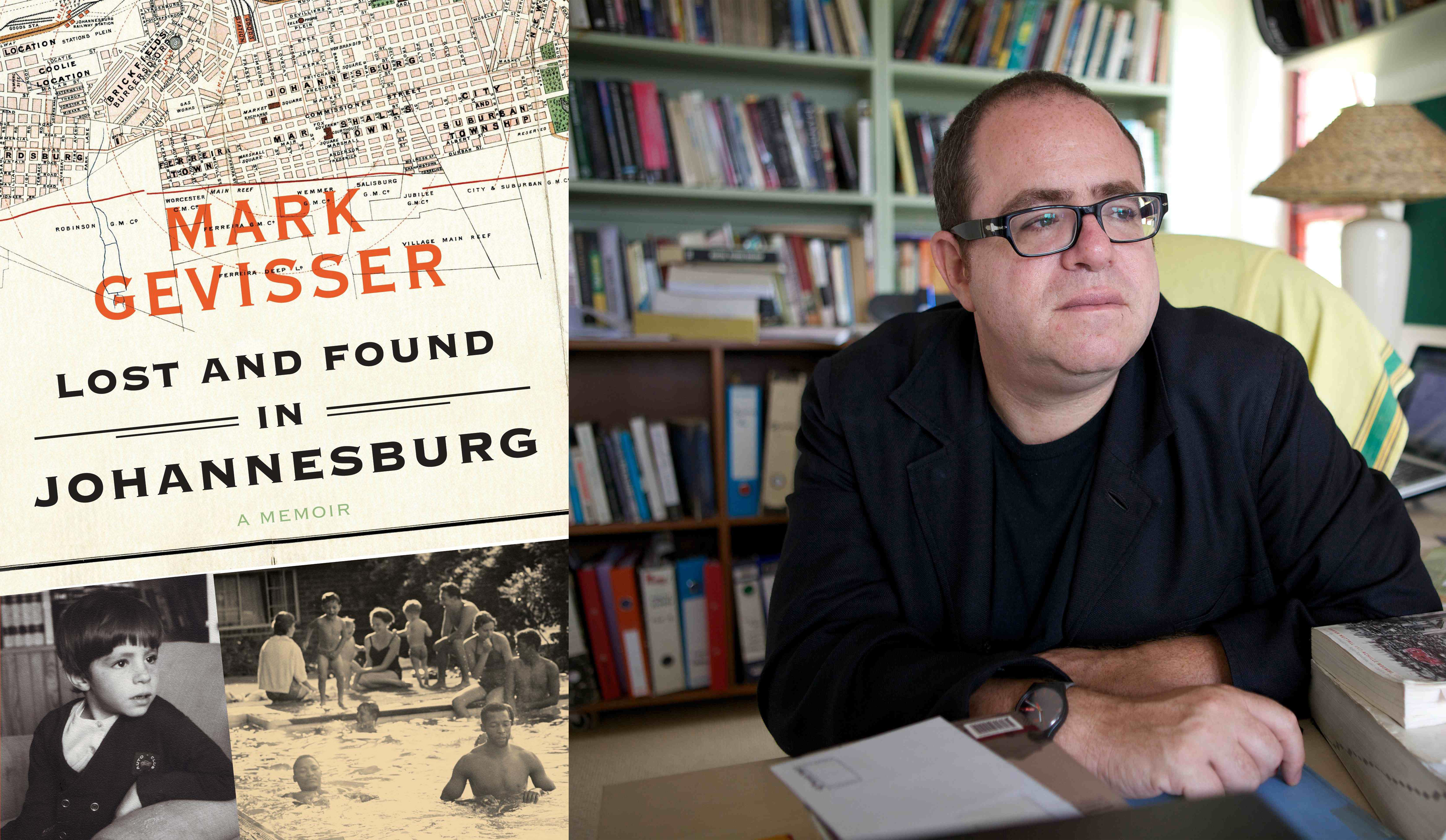
Lost and Found in Johannesburg: A Memoir
by Mark Gevisser
Reviewed by Terri Schlichenmeyer
ONLY ON THE WEB

Photo: James Oatway-Panos
Turn left.
You used to need a map to know that info, but these days, a voice from a screen tells you where to go on your trip. It’s easy and fairly reliable, so who would want to go back to wrestling with a map or wondering if turning left was right?
No, you haven’t used a paper map in eons, but author Mark Gevisser has—and his maps show a city under change. In the new book Lost and Found in Johannesburg,you might see how.
Growing up in South Africa, Gevisser was obsessed with maps; in particular, an archaic book of streets and neighborhoods that helped him play a pretend-game with himself. It was many years later that Gevisser realized that segments of his hometown of Johannesburg were missing from the book—those were the neighborhoods in which the city’s black population lived.
Though his Jewish ancestors had endured discrimination when they immigrated to South Africa a century ago, Gevisser was born into a life of privilege and was mostly insulated from the Johannesburg filled with poverty and black faces. And yet, his family had black servants that lived—by law—in small houses behind the main home.
 Eventually, though, it dawned on Gevisser that the racial system in “Joburg” was flawed. Perhaps he noticed because he had been immersed in a culture of activism in which whites ignored rules and regularly mingled with blacks. Maybe it was because he was a world traveler and had gone to school in America at Yale, or because apartheid was beginning to unravel back home. Or, perhaps, Gevisser’s realizations came about because he began to understand that he was gay.
Eventually, though, it dawned on Gevisser that the racial system in “Joburg” was flawed. Perhaps he noticed because he had been immersed in a culture of activism in which whites ignored rules and regularly mingled with blacks. Maybe it was because he was a world traveler and had gone to school in America at Yale, or because apartheid was beginning to unravel back home. Or, perhaps, Gevisser’s realizations came about because he began to understand that he was gay.
Today, Gevisser lives in Johannesburg, a city that’s surprisingly progressive on issues of sexuality. He’s married to a man he calls “C,” who is of Indian descent. You would think that those factors—an award-winning white, Jewish gay writer married to a man of a different race in a city that relatively recently rejected apartheid—would make for a very fascinating book.
But alas, Lost and Found in Johannesburg is not.
First, it takes eighty-some pages to get past chapters on infinitesimally-detailed streets and neighborhoods, and a litany of Gevisser’s immigrant ancestors—neither of which will mean a thing to anyone who’s not related or in Johannesburg. I lost both interest and patience, but I sallied forth anyhow.
Admittedly, that led me to small pockets of interest—life as a gay South African, brief accounts of apartheid and racism, small heartbreaking stories, and a breathless but disturbing tale of robbery—but they were buried beneath passages of esoteric literature and dozens of names, all of which become a blur.
Yes, I suppose that if you’ve lived in South Africa for a good length of time, or if you’re interested in the detailed genealogy of total strangers, you could certainly give this book a try. Most readers that see Lost and Found in Johannesburg though, will want to turn left and keep on going.
Lost and Found in Johannesburg: A Memoir
by Mark Gevisser
2014, Farrar, Straus and Giroux (us.macmillan.com/FSG.aspx)
352 pages, $27
Terri Schlichenmeyer has been reading since she was three years old, and she lives on a hill in Wisconsin with two dogs and 11,000 books.










